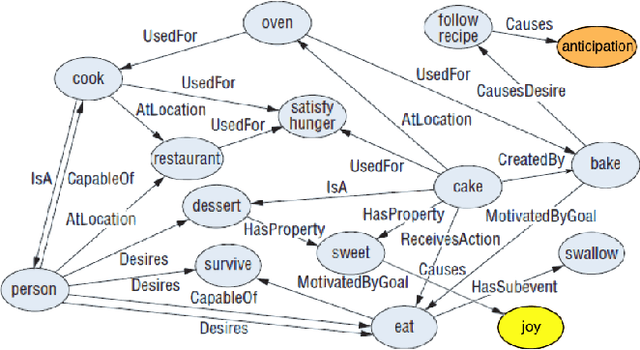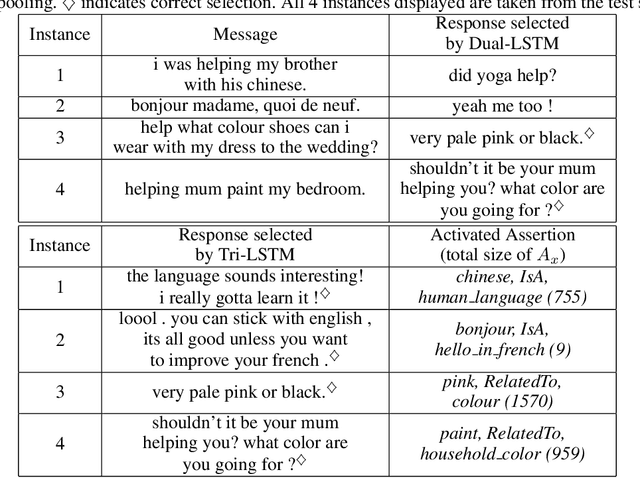Augmenting End-to-End Dialog Systems with Commonsense Knowledge
Paper and Code
Feb 12, 2018



Building dialog agents that can converse naturally with humans is a challenging yet intriguing problem of artificial intelligence. In open-domain human-computer conversation, where the conversational agent is expected to respond to human responses in an interesting and engaging way, commonsense knowledge has to be integrated into the model effectively. In this paper, we investigate the impact of providing commonsense knowledge about the concepts covered in the dialog. Our model represents the first attempt to integrating a large commonsense knowledge base into end-to-end conversational models. In the retrieval-based scenario, we propose the Tri-LSTM model to jointly take into account message and commonsense for selecting an appropriate response. Our experiments suggest that the knowledge-augmented models are superior to their knowledge-free counterparts in automatic evaluation.
 Add to Chrome
Add to Chrome Add to Firefox
Add to Firefox Add to Edge
Add to Edge